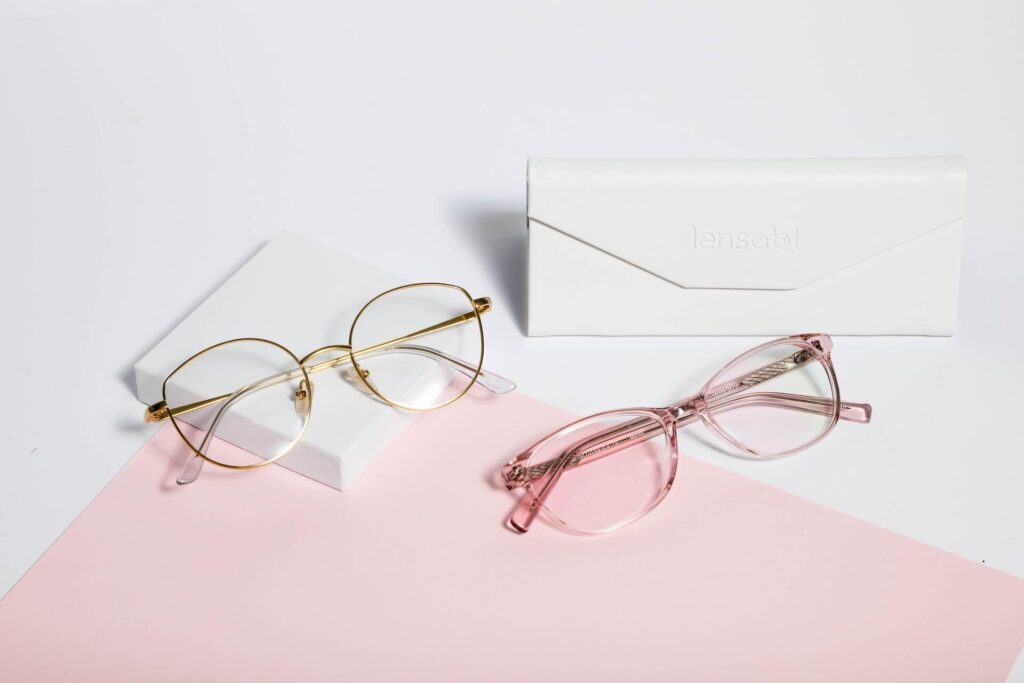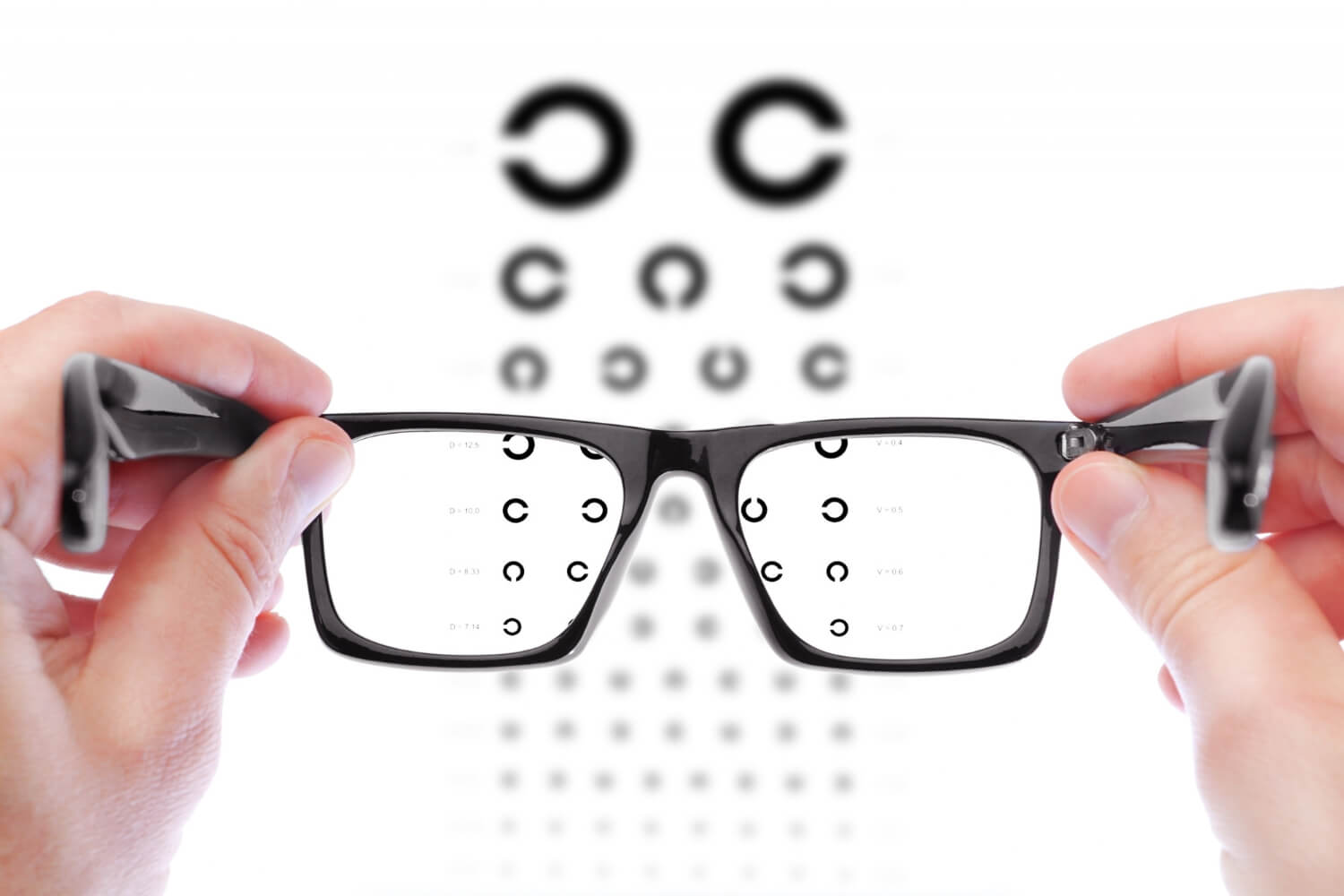Melissa Mitri, MS, RD, is a registered dietitian nutritionist, weight loss specialist, and expert health writer with over 15 years of experience in the health and wellness industry. Melissa has worked in a variety of healthcare settings where she helps clients improve their diet through an individualized approach.
Wondering how to make your vision better now and for years to come? In our highly digital world where computer and phone screens occupy much of our time, the need to protect our eyes has never been more important.
While regular eye doctor appointments are an essential piece of the puzzle, practicing specific diet, exercise, and lifestyle habits can also support eye health. As a Registered Dietitian, I know firsthand the power of good nutrition and its direct impact on the health of your eyes.
So whether you’re experiencing eye strain from being on the computer at work or are seeing your vision decline with age, your lifestyle choices can improve the clarity of your vision. Keep reading to learn how to make your vision better in 6 natural ways.
1. The Power of Nutrition
If you’ve ever wondered “Can my eyesight get better?” you may not have thought about your diet. Eating a well-balanced diet is essential for many reasons, but it can also benefit your vision as well.
Certain nutrients are especially beneficial for the eyes that you’ll want to make sure you get enough of (and it’s more than just carrots!).
Vitamins A, C, and E: These are all rich in antioxidants shown to prevent age-related macular degeneration, the most common cause of vision loss in adults over 50. Good food sources of these vitamins include carrots, tomatoes, bell peppers, oranges, leafy greens, nuts, and seeds.
Omega-3 Fats: These anti-inflammatory fats are key to visual development at a young age and in supporting optimal vision throughout life. They are abundant in fatty fish like salmon, flaxseeds, and walnuts. If you’re not a fish fan or don’t eat it enough, you can also get your daily omega-3 dose from a convenient fish oil supplement.
Zinc: This essential trace mineral helps produce melanin, a protective pigment in the eye. It is clearly essential for eye health as the highest concentration of it is found in the eye. Zinc also helps produce vitamin A, another crucial nutrient for eye health.
Zinc-rich foods include oysters, beef, and peanuts. If you follow a vegan diet and don’t take a zinc supplement, you may not be getting enough. Taking a daily zinc supplement may not only protect your eyes but can support a healthy immune system as well.
Lutein and Zeaxanthin: These natural carotenoids act like sunglasses, protecting the eyes from damaging blue and UV light. Research has shown those who have higher intakes of these two nutrients tend to have a lower likelihood of cataracts.
They are found in green leafy vegetables like spinach and kale, peas, and egg yolks.
2. Regular Exercise
Yes, exercise doesn’t just help your waistline – it’s also good for your eyes! A big reason for this is when it comes to Type 2 diabetes. A lack of exercise and being overweight increases the risk of diabetes, which in turn can impact eye health.
Stay active regularly with exercises you love such as walking, jogging, swimming, or yoga. I always advise my clients to pick the activity they love – as they’ll be more likely to stick to it to see the maximum results.
A combination of cardio and resistance exercises is recommended for optimal fitness and eye health.
3. Hydrate
Proper hydration is also vital for maintaining the health of your eyes. Dehydration can lead to dry eyes, blurred vision, and even headaches in some cases. Ensure you drink at minimum 9-13 glasses of water per day, and consult with your doctor or dietitian for more personalized fluid recommendations.
4. Mind Your Blood Sugar
If you have diabetes or your blood sugar is out of whack, this can negatively impact your vision. Keeping your daily blood sugar levels in check can protect your eyes in the long term and reduce the risk of diabetes-related eye damage such as retinopathy.
You can keep your blood levels at a healthy range by tracking your food and carbohydrate portions, monitoring your blood sugars, and working closely with your doctor or registered dietitian. If you’re unsure of what to do, consult with your doctor for specific guidance.

5. Don’t Smoke
Did you know if you’re a smoker, you are 2-3 times more likely to develop cataracts? Smoking of any form is damaging to your eyes, whether it’s cigarettes, marijuana, or vaping.
Smoking also incrementally increases your risk of age-related macular degeneration. But there is good news – once you quit, your eyes already start to recover within a few hours!
So if you’re currently a smoker, the faster you stop the sooner you can reap the benefits of reduced inflammation and improved vision.
6. Follow the 20-20-20 Rule
Your eyes are also working and require regular breaks. If you don’t give them the breaks they need, you’ll increase your risk of eye strain and subsequently, blurry vision. To ease the strain, follow the “20-20-20 rule.”
With this rule, you’re advised to take a break from the computer every 20 minutes and look at something 20 feet away for 20 seconds. Continue to do this throughout the day to give your eyes the rest and reprieve they need.
This practice will also help give you a quick mental break from your to-do list!
How To Make Your Vision Better – It Is Possible
If you’re wondering how to make your vision better, there are many natural ways to do so. Getting in certain nutrients, exercising, and taking computer breaks are all easy ways to support healthy vision.
If your diet is lacking in vision-enhancing nutrients, a quality multivitamin, omega-3, and zinc supplement can fill in these gaps. And while as a dietitian I take a food-first approach, many times supplements are necessary to make up lost nutrients in the diet.
While these strategies can enhance eye health, regular eye exams are still necessary for early eye disease detection. With these natural methods and prevention measures, you’ll be on your way to viewing the world with renewed clarity!
Disclaimer: This article is for informational purposes only and is not intended to replace medical advice. Always consult with your healthcare provider with any concerns about your eye health.

Melissa Mitri, MS, RD, is a registered dietitian nutritionist, weight loss specialist, and expert health writer with over 15 years of experience in the health and wellness industry.
Melissa has worked in a variety of healthcare settings where she helps clients improve their diet through an individualized approach.
- Latest Posts by Melissa Mitri, MS, RD
-
Planning Healthy Meals On A Budget
- -
5 Worst Foods For Arthritis
- -
5 Easiest Fruits and Vegetables to Grow, and Which To Buy
- All Posts

